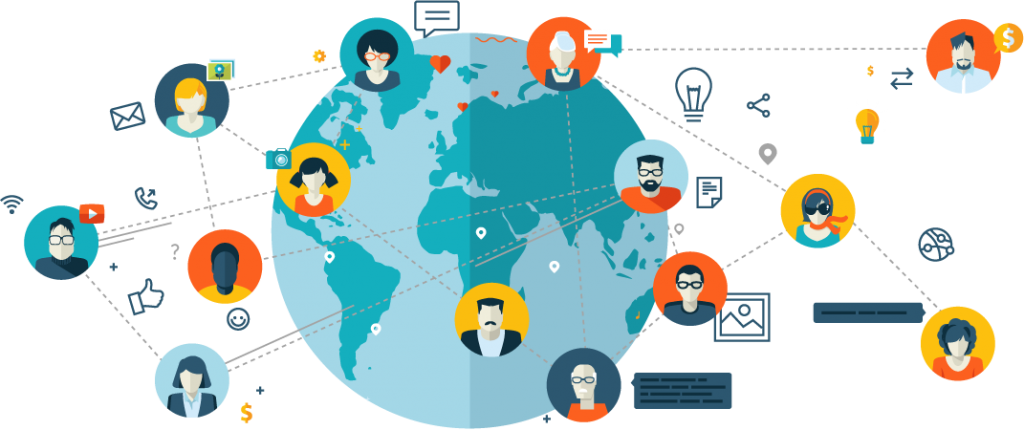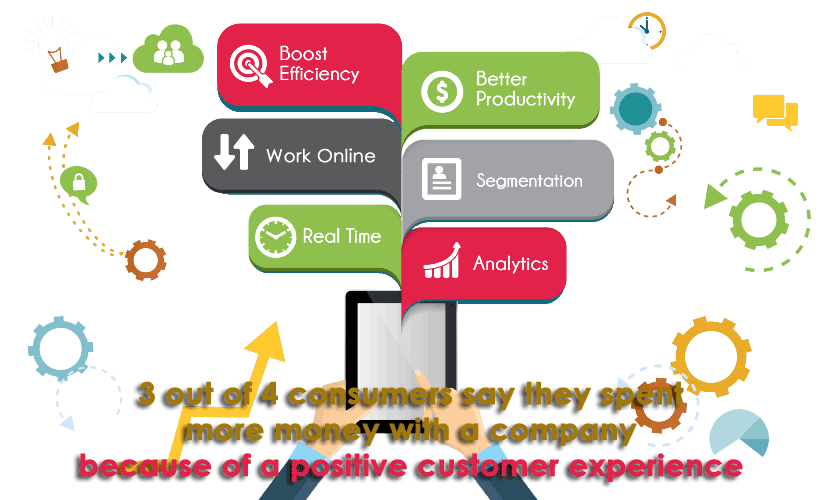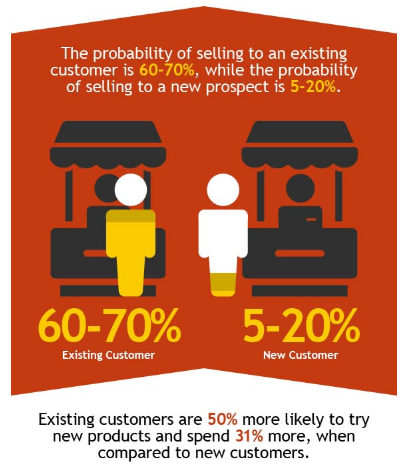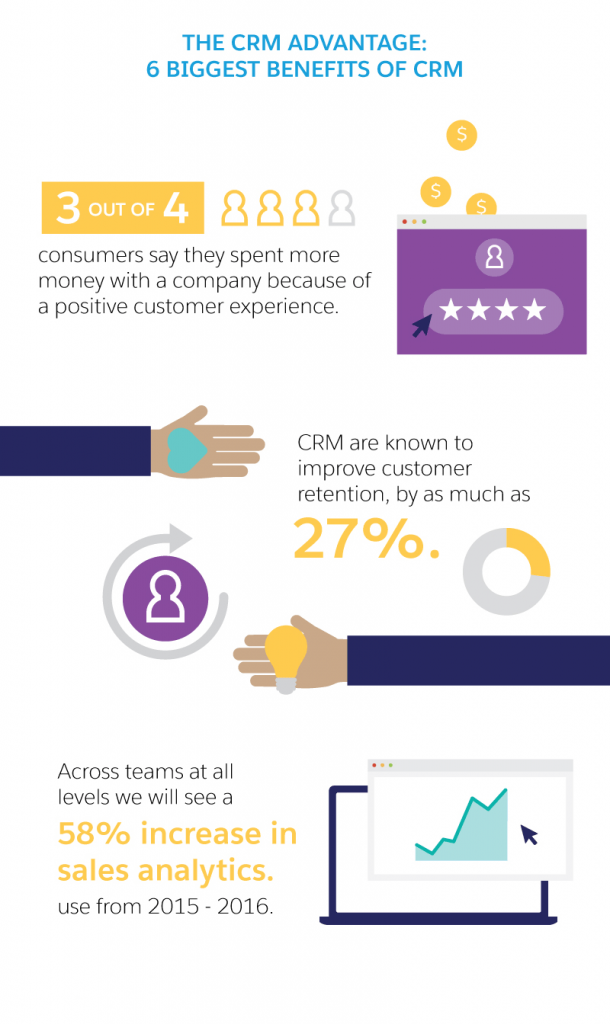
Your customers are important to your business. In fact, no matter what your industry, no matter what your focus, no matter what kind of products or services you offer, your customers are the single most valuable asset of your organisation. Customers give your company a sense of purpose and direction. They provide invaluable feedback, and serve as a springboard for new concepts and ideas. And let’s not forget about the revenue they bring in. When all is said and done, customer satisfaction should be the number-one focus of any business. This means more than simply appreciating your customers; it means understanding them.
Do you understand your customers?
Your customers are important to your business. In fact, no matter what your industry, no matter what your focus, no matter what kind of products or services you offer, your customers are the single most valuable asset of your organisation. Customers give your company a sense of purpose and direction. They provide invaluable feedback, and serve as a springboard for new concepts and ideas. And let’s not forget about the revenue they bring in. When all is said and done, customer satisfaction should be the number-one focus of any business. This means more than simply appreciating your customers; it means understanding them.

Three out of four consumers say they spent more money with a company because of a positive customer experience
The Benefits of CRM
Collecting and organising actionable customer data is a full-time job, and one that isn’t very forgiving of mistakes. As such, investing in a high-quality Customer Relationship Management (CRM) tool is a must for any business that wants to take customer satisfaction to the next level. CRM offers a number of advantages that will help you identify, understand, and assist your clients, so that you’ll never have to worry about losing revenue as a result of incomplete data. Here are six benefits of CRM software that can help your company find success.
1. Improved Informational Organisation
The more you know about your customers, the better you’ll be able to provide them with the kind of positive experience that really pays off. Everything that they do, and every interaction that they have with your organisation needs to be identified, documented, and recorded. To do this, you need to move beyond the sticky-notes and disorganised filing cabinets, and start utilising advanced organisational technology that can not only accurately quantify and categorise data for easy future reference, but also make that data available across departments. Thanks to CRM this all becomes a possibility, it allows you to store a vast list of customers and any important information regarding them. Access to their file is even more convenient than before due to the cloud, so no matter who it is that is helping the customer in question, they’ll have the same actionable data instantly available. This will result in less wasted time for clients and employees.
2. CRM for Enhanced Communication
As mentioned above, CRM makes it possible for any employee to provide the same high level of service, by having access to the same customer data. After all, even if your customers have a single, main point of contact, there’s a good chance that at some point that contact may not be available, and the client will be forced to have to work with someone new. When that happens, many customers face the unhappy prospect of having to ‘start fresh’ with someone who doesn’t understand their own unique preferences and issues. CRM does away with this concern, by making detailed customer information communicable to whomever might need it. As such, it won’t matter who it is that is currently assisting the client, because they’ll be working from the same information. And given that CRM is cloud-based and accessible from any device with an internet connection, the communication benefits of mobile CRM are not limited to the office.
3. CRM Improves Your Customer Service
Your time is valuable, but so is your customers’ time. And, should your customers experience a problem that needs resolution, they’re going to be unhappy unless that problem can be taken care of quickly. With CRM, as soon as a customer contacts your company, your representatives will be able to retrieve all available activity concerning past purchases, preferences, and anything else that might assist them in finding a solution. In many cases, your more experienced representatives, armed with past information and history, will be able to locate a solution within the first few minutes, thanks to an accessible database of potential issues. And, should a solution not be readily apparent, then bringing in other representatives, or even crowdsourcing for answers through customer portals, is a simple matter. With CRM, customer support becomes a walk in the park.
4. Automation of Everyday Tasks
Completing a sale is never as easy as just getting a customer to agree to commit. Along with the surface details of any sale, there are hundreds of smaller tasks that must be completed in order for everything to function properly. Forms need to be filled out, reports need to be sent, legal issues need to be addressed—these ancillary chores are a time consuming, yet vital aspect of the sales process. The best CRM systems are designed to take the burden of many of these tasks from off the shoulders of your employees, thanks to the magic of automation. This means that your representatives will be able to focus more of their efforts towards closing leads and resolving customer pain points, while the automated CRM system takes care of the details.
5. Greater efficiency for multiple teams
Automatically stored communication allows you to view emails, calendar and phone call details in one easily accessible place. Add that to the ability for multiple teams to access the same information, it simply skyrockets the amount of achievable progress. Sales, marketing, and customer service teams can share valuable information about clients to continue to funnel them down the pipeline to get the desired result of closing a sale, knowledge of new products, or excellent customer service. Every department can now tag team to get the right information to the right individual. With this new found ease, teams can seamlessly work together to improve the bottom line.
6. Improved Analytical Data and Reporting
Miscalculated data should not be the reason you cannot succeed, with CRM this is no longer a possibility. CRM systems store information in one place which leads to improved analysing of the data as a whole. Easily integrated with different tools or plugins, you have the ability to generate automatic reports to maximise your time. Personalise your dashboard views to quickly locate information needed such as customer information, sales goals, and performance reports to reach untapped opportunities. With better reporting data you can make resourceful and effective decisions to reap the rewards in customer loyalty and long run profitability.

CRM’s are known to improve customer retention, by as much as 27%
CRM for Happier Customers
The key to giving customers what they want lies in understanding them, and a CRM system does just that. It facilitates things by giving you and the customer, ease of communication, organised data, and improved customer service. All of this will streamline the process of making sure needs are met and actions get resolved in a timely manner.
Your customers are the most important part of your business, and keeping them happy should be your top priority. Don’t put your business at risk; invest in a quality CRM tool, and prove to your clients that you care about their satisfaction. The CRM process shouldn’t be about a working harder but about working smarter, so that your customers get what they want, and you do too.
